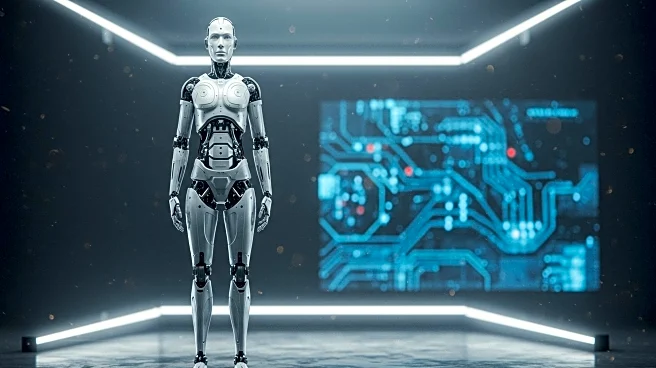What's Happening?
China has launched the world's first humanoid robot games, featuring over 500 robots from 16 countries competing in various events such as soccer, boxing, and table tennis. The three-day event, held in Beijing, aims to advance research in robotics and artificial intelligence. Participants, including teams from Germany and the Netherlands, are using the competition to test new technologies and approaches. Despite frequent falls and crashes, the event highlights China's commitment to becoming a leader in robotics and AI, supported by a substantial government fund for technology startups.
Why It's Important?
The humanoid robot games underscore China's strategic focus on robotics and AI, positioning itself as a global leader in these fields. This initiative reflects China's ambition to enhance its technological capabilities and competitiveness on the world stage. The event also serves as a platform for international collaboration and innovation, potentially influencing future developments in robotics. As China invests heavily in AI and robotics, other countries may need to accelerate their own technological advancements to keep pace, impacting global economic and technological dynamics.
What's Next?
Following the games, China is expected to continue hosting similar events to further its robotics research and development. The country's substantial investment in technology startups suggests ongoing support for innovation in AI and robotics. As China seeks to expand its robot industry, international markets may see increased competition and collaboration opportunities. The outcomes of these games could influence future technological strategies and policies, both within China and globally.
Beyond the Headlines
The humanoid robot games highlight ethical and cultural dimensions of AI and robotics, such as the potential for robots to perform tasks traditionally done by humans. This raises questions about the future of work and the role of AI in society. Additionally, the event reflects China's cultural emphasis on technological progress and innovation, which may influence global perceptions of AI and robotics.











